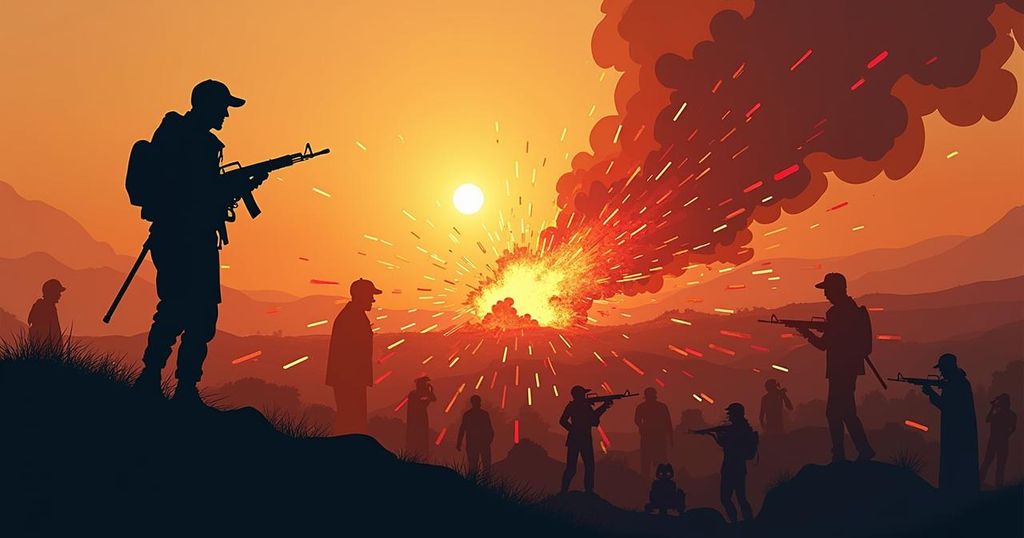The ongoing conflict between Israel and Iran poses significant challenges for Russia, which seeks to balance its military dependence on Iran with a desire to avert full-scale war. The escalating violence in Lebanon complicates Russia’s foreign policy goals, emphasizing its historical ties with regional powers and the implications for its relations with the US. As Moscow navigates this precarious landscape, it advocates for diplomatic solutions while simultaneously benefiting from the chaos that distracts its adversaries.
Russia’s geopolitical stance in the current Israel-Iran conflict reveals a complex interplay of military dependence and strategic maneuvering. As the intensity of Israeli airstrikes in Lebanon escalates—claiming over 2,000 lives and prompting ground operations in the south—Russia grapples with its alliances and interests. Russia’s reliance on Iranian military support for its endeavors in Ukraine underscores the significance of Tehran as a strategic ally, particularly in military terms. In light of this, experts caution about Russia’s preference for chaos in the region, which effectively distracts the United States from its commitments in Ukraine, but stress that Moscow seeks to avoid a full-scale war. The conflict also poses challenges to Russia’s foreign policy objectives, which advocate for a multipolar world in contrast to US dominance. Russia’s Ministry of Foreign Affairs has publicly condemned Israel’s military actions in Lebanon, calling for a withdrawal of forces while also urging a diplomatic resolution to the conflict. This stance highlights the tension between supporting Iran and maintaining stability in the region. Despite its historical ties to Hezbollah, which have been fraught with complications since the Lebanese Civil War, Russia attempts to exert influence by advocating restraint among its allies. The notion of a tacit agreement between Israel and Russia has been suggested, with both nations seemingly navigating their actions carefully amid the ongoing conflict. Amid these dynamics, Russian nationals remain in Lebanon as Russian emergency evacuation flights also deliver humanitarian aid, highlighting Moscow’s continued, albeit cautious, involvement in the region. The situation is precarious, and observers like Anna Levina, a Russian researcher in Beirut, express hope that Hezbollah will impede the Israeli advance, drawing on lessons from previous conflicts. Her sentiments reflect a broader concern for the humanitarian implications of this ongoing conflict and the strategic interests that underlie it.
The conflict between Israel and Iran represents a significant geopolitical challenge for Russia, complicating its foreign policy objectives amid rising violence in the region. Historically, Russia has maintained a complex relationship with various Middle Eastern actors, including Iran and Hezbollah. The current escalation serves Russia’s interests in diverting US attention and resources while aligning with Iran’s military endeavors amid its own military activities in Ukraine. Understanding Russia’s motivations requires examining its historical ties with the region and how they influence its current diplomatic and military strategies.
In conclusion, Russia’s strategic interests in the Israel-Iran conflict illustrate a delicate balancing act between maintaining alliances and encouraging stability while benefiting from the chaos that diverts American attention. Moscow’s reliance on Iranian military support complicates its position, as it seeks to advocate for a diplomatic resolution while also managing its complex historical ties with Hezbollah and other regional actors. The unfolding conflict highlights the intricate connections between international relations, historical legacies, and contemporary military strategies.
Original Source: www.aljazeera.com







